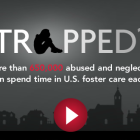
Study: Zero Tolerance Policies May Have Negative Health Implications for Students
|
A new report based on research of three California school districts suggests that school children exposed to so called, “zero tolerance” policies may be taking a toll on their mental health and wellbeing. The report, funded by the California Endowment and coordinated by Human Impact Partners (HIP), Community Asset Development Re-Defining Education (CADRE) and Restorative Justice Partners (RJP), examined three student populations in Los Angeles, Oakland and Salinas, California. It found that youth enrolled in middle and high schools that practiced zero tolerance policies were much likelier to have higher stress levels than students attending schools using alternate disciplinary models, such as positive behavioral interventions and supports (PBIS) and restorative justice (RJ) programs.
Researchers believe that stress levels are major components regarding students’ mental health and that elevated stress levels may even lead to shorter life expectancies for the populations studied. Additionally, the researchers state that students enrolled in schools using PBIS or RJ disciplinary models were, on average, more likely to have higher grades, test scores and overall attendance rates than students enrolled in schools using zero tolerance, also called exclusionary disciplinary programs. The report also says that students enrolled in schools with zero tolerance programs have higher dropout rates, participate in fewer extracurricular activities and are referred to special education programs more frequently than students attending schools with alternative disciplinary polices in place. The report states that a majority of schools in the United States use “zero tolerance” disciplinary policies, which frequently result in severe punishment - such as expulsion or arrest - for infractions involving weapons, drugs, threats and in some instances, insubordination or cursing.








